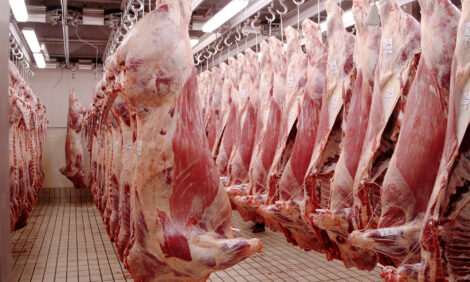



Vaccine To Reduce E.Coli
US - Immunising calves with either of two forms of a vaccine newly developed by Agricultural Research Service (ARS) scientists might reduce the spread of sometimes deadly Escherichia coli O157:H7 bacteria.The microbe can flourish in the animals' digestive tracts, yet doesn't cause them to show clinical symptoms of illness.
In humans, however, E. coli can cause bouts of diarrhea and, sometimes, life-threatening hemolytic uremic syndrome.
Research microbiologists Vijay K. Sharma and Thomas A. Casey developed the novel vaccines in their laboratories at the agency's National Animal Disease Center in Ames, Iowa and are seeking a patent for it.
Preventing E. coli O157:H7 from proliferating inside cattle helps limit contamination of meat at the packinghouse, and reduces shedding of the microbe into the animals' manure. Manure-borne E. coli can be moved by rainfall into drinking water. What's more, it can end up in irrigation water, and can contaminate fruits, vegetables or other crops, increasing risk of an outbreak of foodborne illness.
One form of the vaccine is comprised of cells of a strain of E. coli O157:H7 that is lacking a gene known as hha. A second form of the vaccine contains an E. coli strain lacking both hha and a second gene, sepB. In either vaccine, the E. coli strain produces a large quantity of what are known as immunogenic proteins. These proteins trigger the immune system response that prevents E. coli O157:H7 from successfully colonising cattle intestines.
In preliminary tests, Holstein calves were immunised at three months of age with a placebo or either form of the vaccine. Six weeks later, the animals were given a dose of E. coli O157:H7, and, for the next 18 days, their manure was tested for evidence of the microbe. Calves that received either vaccine had reduced or non-detectable levels of E. coli in their manure within only a few days after being inoculated with the bacteria, the microbiologists found.
TheCattleSite News Desk


